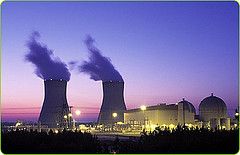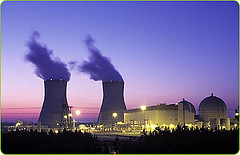China research surge to dominate thorium nuclear technology
China is accused of developing threatening nuclear energy, however development towards thorium nuclear indicates the nation’s move to a more ethical stance on the controversial energy form.

 China is accused of developing threatening nuclear energy, however development towards thorium nuclear indicates the nation’s move to a more ethical stance on the controversial energy form.
China is accused of developing threatening nuclear energy, however development towards thorium nuclear indicates the nation’s move to a more ethical stance on the controversial energy form.
Scientists and private firms in China have embarked on a major new surge to develop liquid-fluoride thorium reactor (LFTR) technology. First developed by the US military in the 1950s and 1960s, research was abandoned, perhaps because the technology offered no potential for producing nuclear weapons.
Research has re-commenced in the US, and India, Japan, and Russia, are now also working on thorium reactors. Last month, China showed evidence of joining the race towards a credible LFTR design.
Thorium is three to four times more abundant throughout the world than uranium, and could be used to create nuclear energy in various ways; however the Manchester Report in 2009 found LFTR technology use most notable.
Benefits of thorium nuclear include waste remaining toxic for hundreds, rather than thousands, of years, and power stations that are smaller and considered safer than uranium reactors.
Alexander Cannara, an electrical engineer and green activist, told Spectrum (August, 2010): "there are millennia of thorium atoms within easy reach, requiring no energy-intensive, proliferation-endangering 'enrichment', and no wasteful removal of delicate fuel pellets and rods before even 10 percent of their fuel is consumed."
A thorium reactor cleans up after itself, and proponents indicate that as part of its regular energy generation process, it could function as a kind of waste disposal mechanism for plutonium and other weapons grade material, said Cannara.
China’s development of thorium nuclear was announced in the Chinese Academy of Sciences (CAS) annual conference on Tuesday, 25 January.
The research is led by Dr. Jiang Mianheng, a graduate of Drexel University in electrical engineering. He said that the aim is to secure intellectual property rights for thorium’s implementation.
Technology journalist Andrew Orlowski reported that a private company in China is aiming to build a prototype within five years, which can produce electricity for as little as 6.8p per kilowatt hour.
Although the thorium reactor could be a safer and less environmentally destructive alternative to uranium fuelled nuclear, with China as the forerunner in the global renewable energy industry, the investment in further nuclear remains controversial.
Given China’s domination in other technological fields, with new developments including a proposed hydropower project at the Nu River, the nation’s exploitation of thorium as an energy source, and its emergence as a leader in the field, could soon become a reality.
Image: BlatantWorld.com | Flickr
